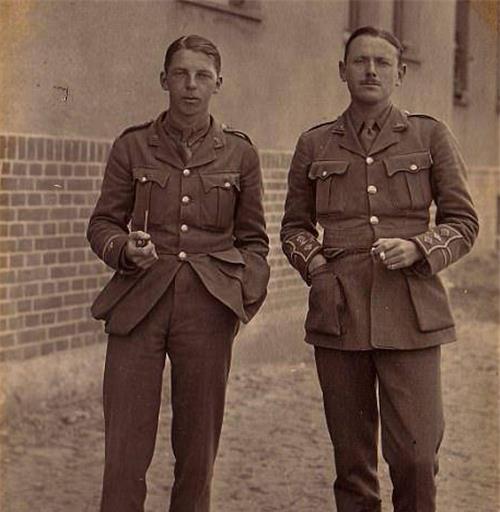Whether it is the First World War or the Second World War, Germany is hard to blame, the starting point of the Second World War is Germany's "blitzkrieg" Poland, until Germany loses to the Soviet Union, even if the Second World War ends, some people will be called: "Hitler's War", and the First World War is called "the War of the Kaiser".

The Kaiser refers to Wilhelm II, but whether he intends to provoke war, it is unknown, in fact, from the Sarajevo assassination, the smoke of war has begun to spread, it has only become a fuse, when Germany officially declared war on Russia, Wilhelm II is still trying to meet with Nicholas II, hoping to avoid war, but the outbreak of war is inevitable.
It is said that Wilhelm II, when signing the order of the General Mobilization, also said to his subordinates, "You will regret it", but after the war began, he encouraged Austria to adopt a tough policy toward Serbia, and during the war, he made himself Grand Marshal of the German Army, and there is another interesting story about Wilhelm II.
In 1914, British Army Captain Robert Campbell, unfortunately captured by the Germans at the Battle of the Marne, was sent to the prisoner of war camp in Magdeburg, the German prisoner of war camp in World War I, unlike the Holocaust camp in World War II, where they had their own schedule, and a football field, and they could drink a beer every holiday, which was very humane.
Everyone in the camp seemed to be waiting for the war to end, and in 1916 the Battle of Verdun began, but that was not what Robert Campbell was concerned about, and his mother sent a letter from England, who was suffering from cancer and was dying at any moment.
Robert Campbell had to go back, and he made a bold move, he wrote a letter to Kaiser Wilhelm II, according to common sense, this letter is not to say that it was sent to the Kaiser, whether it can pass the soldiers is a problem, but at that time Germany was humanitarian, and it was okay to send and receive letters.
Robert Campbell's letter passed through many people, soldiers, officers, and after reading the letter, they did their best to pass it up layer by layer, and thus reached the hands of William II, who could choose to ignore it, but he still read it, not only read it but also returned a letter to Robert Campbell.
Wilhelm II gave him two weeks of "parole", but there was a condition that after two weeks he had to return to the camp, and in this way Robert Campbell embarked on the journey back to the country, he did not dare to delay for a moment, and after returning to Kent, he met his mother, and after a week of accompanying her, Robert began to set off again to return to the camp.
Although Robert Campbell was freed, he made a pact with William II that if he did not make a promise he would lose a man's honor, which was more painful than death, robert returned to the prisoner of war camp, and it took two weeks before and after, not only the German army of the prisoners of war was unbelievable, but even William II was surprised.
Returning to the prisoner-of-war camp, Robert Campbell did not intend to be willing to be a prisoner, he and a few fellow prisoners dug an escape route, but failed, and the Germans who captured him at the time felt that this man must have a brain disease, and after the end of the war, Robert Campbell returned to his homeland.
When World War II broke out, Robert Campbell was involved in World War II, this time with the intention of avenging a shot, Robert Campbell did not die in the war, and lived until the age of 81.